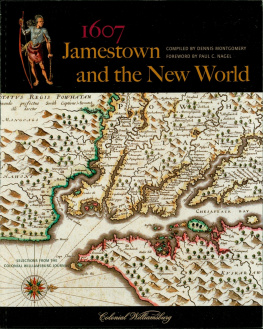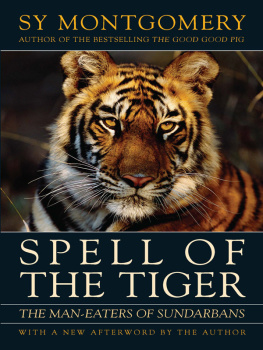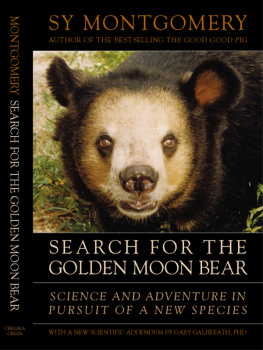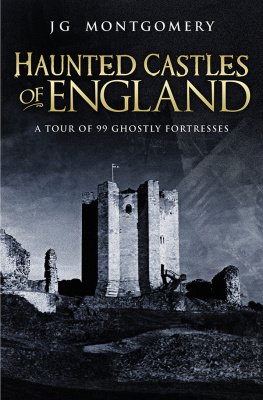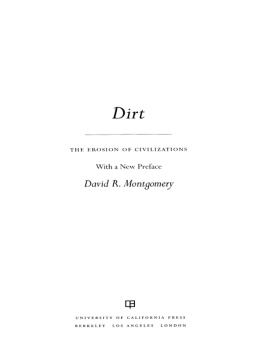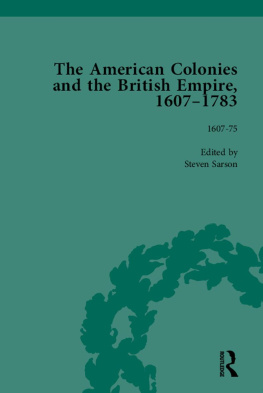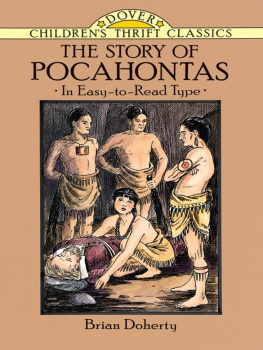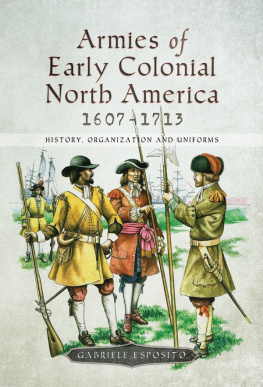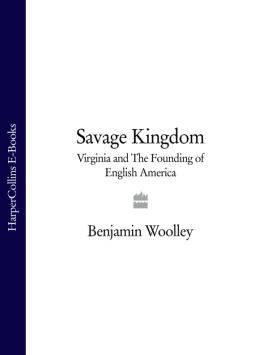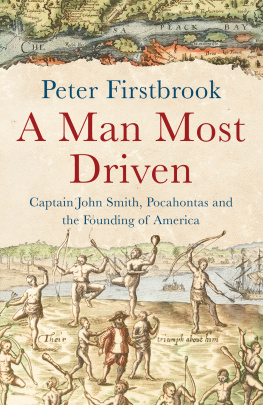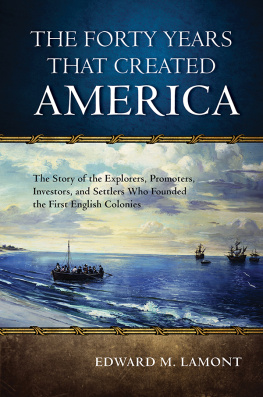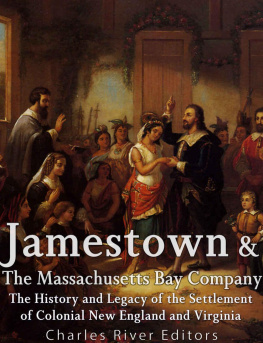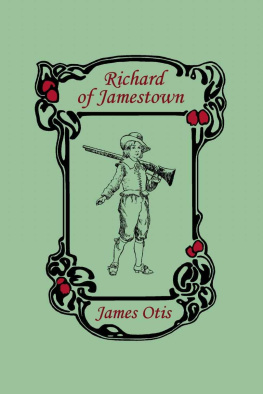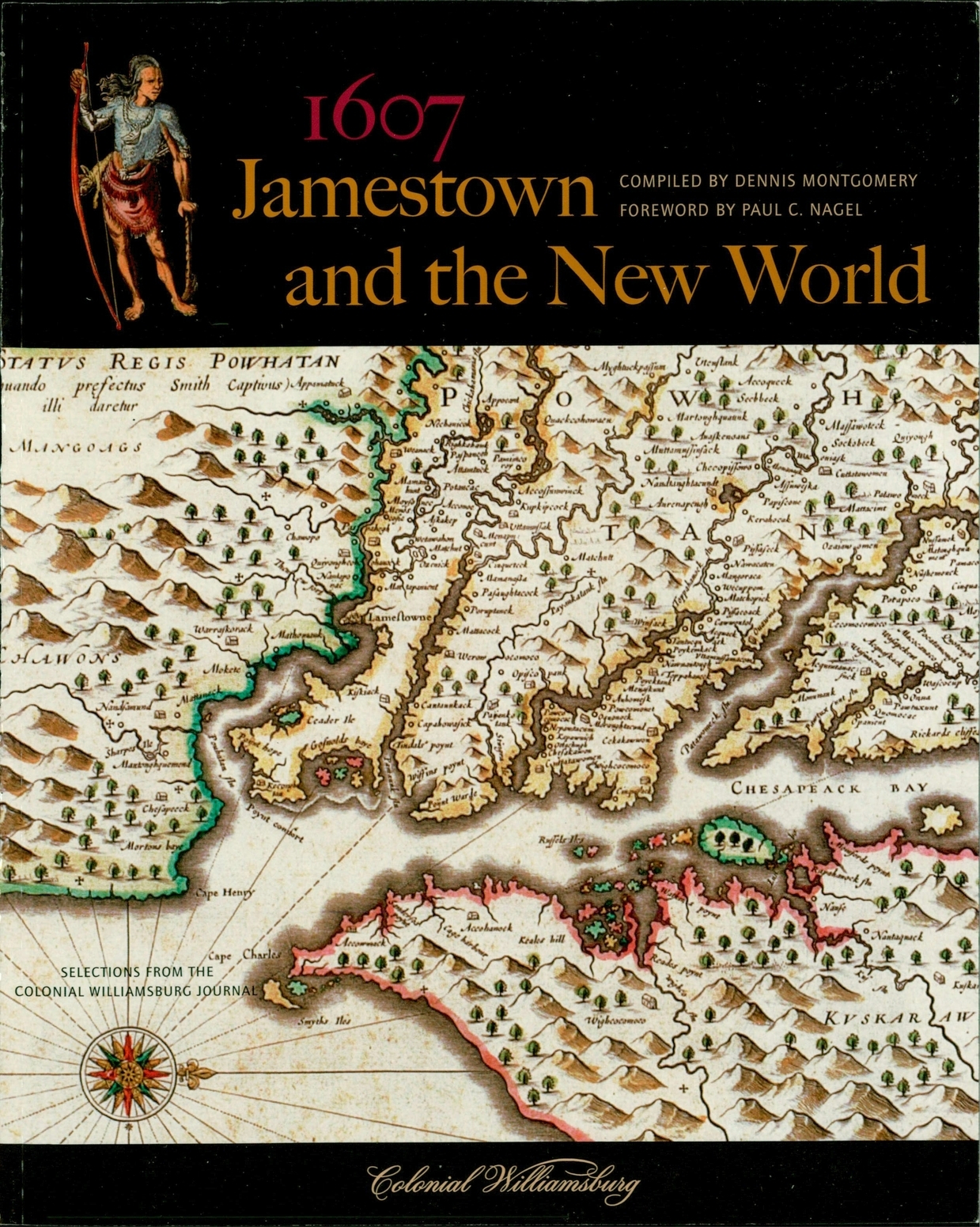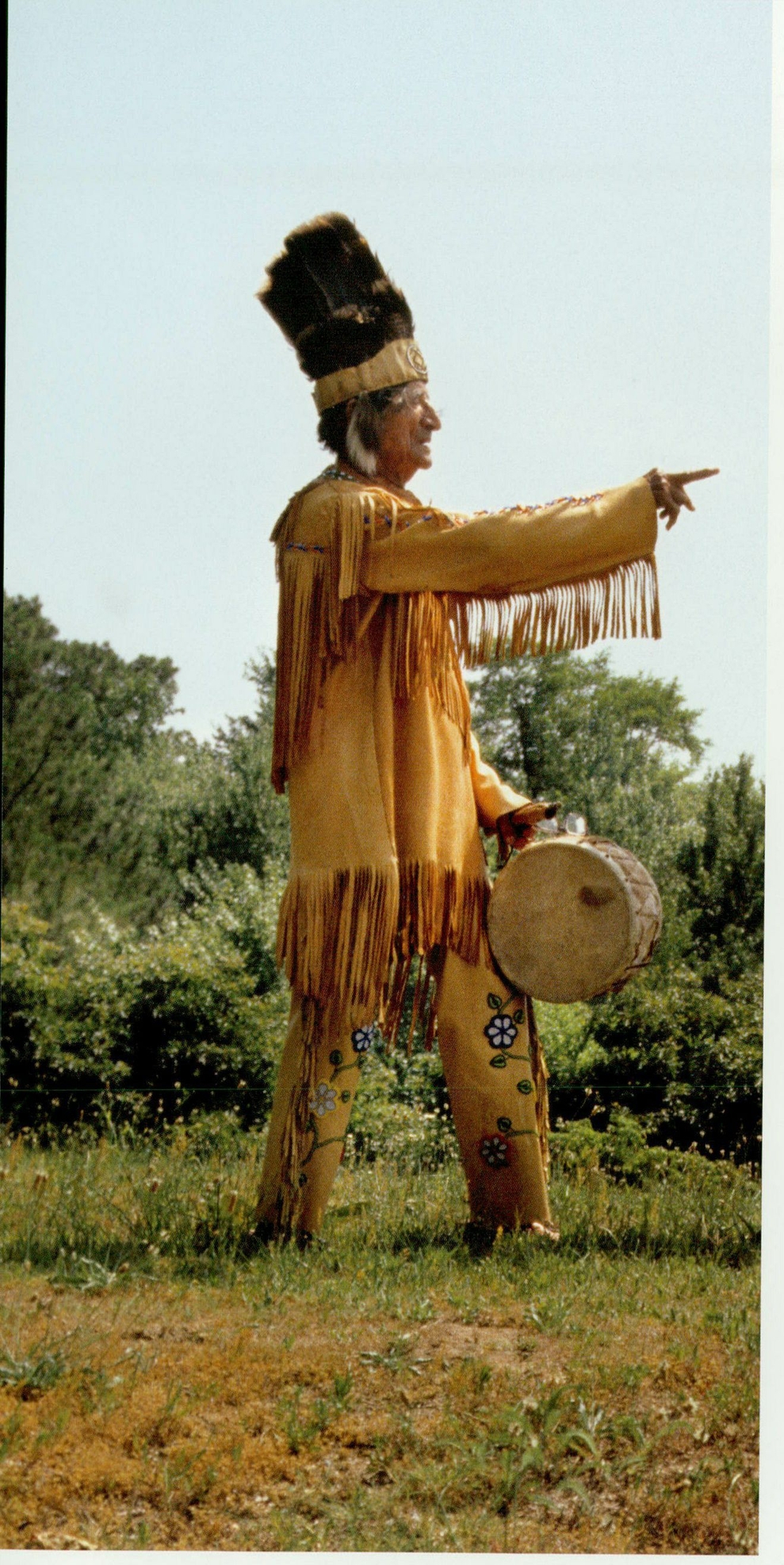About the Contributors
Anthony Aveni is the Russell Collate Distinguished University Professor of Astronomy, Anthropology, and Native American Studies at Colgate University. Among his recent works is a childrens book, The First Americans, which won the 2006 Golden Spur Award for Juvenile Nonfiction and was a top ten selection by the International Reading Association.
James Axtell is the Kenan Professor of Humanities at the College of William and Mary. A member of the American Academy of Arts and Sciences, he is the author or editor of seventeen books on the history of colonial Indian-European relations and the history of education.
Allan C. Fisher Jr. was a National Geographic editor and the author of Americas Inland Waterway.
Andrew Gardner writes and directs television documentaries, including Gospel of Liberty, which portrays George Whitfield and the aftermath of the Great Awakening in colonial Virginia.
Charles M. Holloway served as special assistant to the U.S. commissioner of education and as director of information and corporate communications at the College Board. He also was director of university conununica-tions at the College of William and Mary and has published two books.
Bruce P. Lenman is a Fellow of the Royal Society of Edinburgh, emeritus professor of history at the University of St. Andrews, and honorary professor at the University of Dundee. He has authored a dozen books in the fields of Scottish history and early-modern European overseas expansion. He lives in Stirling just under the rock crowned by the castle where James was baptized in 1567.
Michael Lombardi is an independent writer, producer, and director. He was previously director of operations and executive producer of Colonial Williamsburg Productions.
Will Molineux has been a reporter for the Virginia Gazette, the Richmond News Leader, and the Daily Press; Williamsburg bureau manager for the Daily Press; and editor of the Daily Press editorial page. He has also edited pictorial books on Williamsburg and Jamestown.
Dennis Montgomery began his career as a writer and editor with the Associated Press in 1968. His work with Colonial Williamsburg, the journal of the Colonial Williamsburg Foundation, began twenty-three years later and led him to the magazines helm in 1998.
Paul C. Nagel devoted the first half of his career to university life, including four years as director of the Virginia Historical Society. Since 1985, he has written exclusively for the general reader, including several books about the Adamses of Massachusetts and another about Virginias Lees.
Mark Nicholls is a fellow, a tutor, and the librarian at St. Johns College, Cambridge, whose teaching and research interests lie in Tudor and Stuart government and politics. His books include Investigating Gunpowder Plot and The History of the Modern British Isles, 1529 - 1603 , the first volume in the Blackwell History of Modern Britain series.
Ivor Noel Hume came to Colonial Williamsburg from Londons Cuildhall Museum in 1957 to head the foundations Department of Archaeology. In 1992, he was made Officer of the British Empire by Queen Elizabeth II. He is the author of fifteen books and made two prizewinning television films for Colonial Williamsburg. His play on the life of Captain John Smith was presented at the Kimball Theatre in Williamsburg as a contribution to Virginias 400th anniversary commemoration.
David Robinson is a retired Ntitional Ceo-graphic book editor. He has authored several books and nearly a hundred articles for a variety of publications.
D. A. Saguto has headed Colonial Williamsburgs shoemaking program since 1990. He is a fourth-generation artisan, as well as a lecturer, author, and consultant who has researched and taught traditional shoemaking in North America and Europe. He has designed and installed six historical shoemaking exhibits for the Smithsonian Institution in Washington, D. C.
Mary Miley Theobald taught museum studies and American history at Virginia Commonwealth University and now writes books and articles, most on history and travel topics. Her books include Williamsburg Christmas and Colonial Williamsburg: The First 75 Yetirs, which was nominated for a Library of Virginia Literary Award.
Dr. Lewis Wright is a retired neurosurgeon. He has studied the life of the Reverend Robert Hunt for several decades.
Shadows on the Land
The Powhatan Indians
ALLAN C. FISHER JR.
What were they like, the original masters of the dense forests, the lovely rivers, the sunlit Chesapeake in the coastal lands of what we now call Virginia? Were they mere brutish savages? Or people with a culture and proud heritage of their own? Did they just exist? Or did they live in knowing harmony with their Eden? What happened when proud Indian met haughty Englishman in the dawn time of our nation?
R epeatedly the foremost priests, who talked to the gods and whose insights none dared question, had warned of it. From out of the Chesapeake Bay would arise a nation that would destroy the empire of the mightiest of all rulers, Powhatan, feared master of more than thirty tribes. And the people also heard and pondered a second prophecy: They would fight three battles against the invaders of their lands, and the last battle would leave them broken and subject to the aliens.
Bitter, bloody propheciesand both came to pass. The prolonged confrontation in Tidewater Virginia between the Indians known collectively as Powhatans and the land-hungry English settlers who first came from the Chesapeake in their great winged canoes almost four centuries ago could end in only one way, defeat and capitulation for the original Americans and the loss of their vast hunting grounds. Guns and numbers, not some star-crossed destiny, determined the outcome. The invaders carried fearsome thundersticks that spat fire and death, and each year more and more came in an overwhelming flood. Women and children on both sides, not just the combatants, died in clashes of a ferocity that gave no quarrer and asked none. Unhappily but predictably, this pattern of confrontation continued across a vast continent for almost three centuries and in a thousand encounters: Tippecanoe and the Trail of Tears, Custers Last Stand and the massacre at Wounded Knee, the 1,700-mile fighting trek of Chief Joseph and the surrender of proud Geronimo.
Former Pamunkey chief Tecumseh Cook, 91, standing on what the tribe believes is the burial mound of Powhatan, points to a landmark he uses in locating the grave site.
Festering wounds, these, in the national psyche and the reason some contemporary historians at times take sides and condemn or defend either the Powhatans or the Jamestown colonists for their excesses and for not setting an enduring example of brotherly concern. Indeed at times both adversaries tried to live amicably. But no judgments from the moral vantage point of the late twentieth century seem warranted. They were what they were, Indians and English alike, warlike peoples. To the Indians tribal warfare had been a way of life for untold centuries, and the English in their latest of many wars had vanquished the Spaniards. Settlers would include many old soldiers as keen for throat cutting as any brave. Converting the Indians to Christianity and the English economy did not prove successful as means of bridging differences. Above all, two vastly different cultures grated upon one another with no real hope of accommodation.

